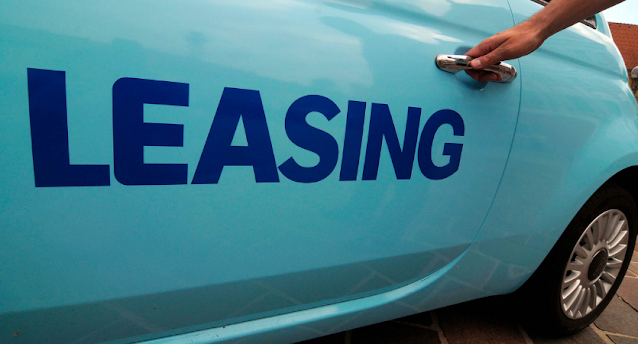Ad Code
Translate
Smart strategies for trading on crypto exchanges
Five Do’s For a Healthy Turnover That Bolsters Talent-Retention
Discover Honeybee Pharmacy (2025 Guide Important Consumer Tips)
What is Ozempic (semaglutide)? (Updated in 2025)
Posture Bra: Improving Back Support and Comfort
How To Find Suitable Properties In Cyprus?
10 Effective Strategies to Improve Domain Authority of Your Website
Leasing a car in Austria: Top 5 things you must know
You’ve recently
moved to Austria or gotten your driver’s licence? The next exciting step is to
get a car; however, all the options can be overwhelming for beginners. We’ve
got your back!
Try leasing a car! These are the top five things you should know before you start.
No. 1: What is vehicle leasing?
It is a common alternative to vehicle purchasing. Instead of buying your dream car and putting out a large amount of money all at once, you have the option of leasing it. This entails paying a fixed amount of money each month while ‘leasing’ and using the car for a predetermined period of time.
The primary difference between buying and leasing is the following: in a lease the car either gets returned or purchased at the residential value from the leasing company once the primary term is up.
No. 2: Why leasing is better than renting or buying a car
There are a number of options available when it comes to getting a vehicle. You can buy, rent or lease a car in Austria; each one has its benefits and drawbacks. While buying and renting cars are usually the obviously choices, we believe leasing is an underrated one. It’s certainly become very popular in Austria.
Why should you lease a car instead? Firstly, because it is financially more bearable: you pay small leasing instalments instead of high one-off expenses. Secondly, because financing the vehicle this way is more efficient: The cost can be adjusted to the vehicle’s longevity. Thirdly, because your contract is customised; it includes the duration of the lease, down payment amount and residual value.
Unfortunately, there are also some disadvantages to leasing a car. Firstly, the total costs are somewhat higher due to added interest rates. Secondly, since there are fixed terms, the lessee cannot sell the car within their contract’s timeframe.
No. 3: Choose between local and imported vehicles
So, you’ve decided to lease a car in Austria? Now, you have to decide between leasing a local car or an imported one. While most people are familiar with leasing locally, fewer people are familiar with import leasing.
What exactly is import leasing? Instead of paying one lump sum when importing assets, businesses or individuals pay regular rental payments to overcome cash flow problems. This is done by consulting with specialist asset finance companies that purchase the asset on your behalf before leasing it back to you.
Why should you even considerer leasing an imported vehicle? The answer is simple: you have a broader selection. Austria’s neighbouring countries, especially Germany, have a bigger new and used car market and offer more cost-effective options.
No. 4: How does import leasing work?
The most important thing when it comes to import leasing is complying with the terms and conditions. There are three criteria: The VAT (value added tax) should be reported – i.e. “including 19% VAT” or “VAT reported” have to be included in the advert. The vehicle cannot be older than six years, and it cannot be obtained from a private individual.
Why is import leasing complicated? Since leasing banks only buy from Austrian companies due to the increased taxation expenditures, you’ll have to organise the whole venture yourself and take care of dealing with everything VAT related.
No. 5: Car import consulting companies
Since importing a car can be rather complicated, there are companies that specialise in taking care of all the expenditures connected with import leasing. Companies, such as NOVORA, completely handle importing your dream car while simultaneously also functioning as a leasing service.
Most companies require you to simply send them your request, and they will respond with a quote (how much it will cost). After that you have two options: Either you lease the vehicle directly from the company and their respective bank, or they help you lease it from a bank of your choice. After they receive the financing commitment from your bank, you will get the car delivered to your doorstep. All that’s left to do is for you to register it.
If our tips haven’t helped you, don’t hesitate to contact your local car import consulting companies that will inform you about all the ins and outs of car import and the expenditures connected with it.


Social Plugin